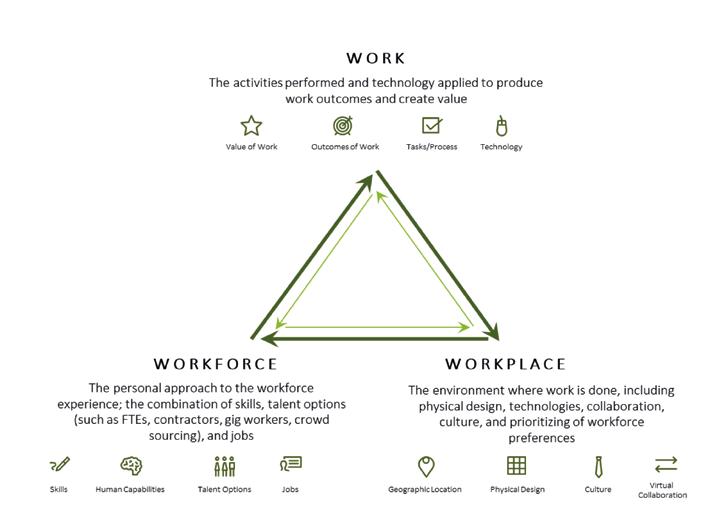GLOBAL MOBILITY
The Growth Of The ‘Economic Employer’ Concept For many years, the Global Mobility profession have relied on the so called “183 day rule”. This so called rule assumes that there are no tax issues for an employee working on a short-term basis in a country other than their home country as long as the employee is not present in a host country for more than 183 days and that they are paid by their home location. However, the “183-day rule” is not actually a rule but rather an exception to the rule that tax is paid in the location an individual’s employment is exercised. Article 15 of the OECD Model Tax Treaty Convention (1), the dependent personal services article, provides that employment income is taxable in the country where the employment is exercised. However, paragraph 2 of Article 15 provides exemption to the general rule, and employment income may be taxable in the country of residency if the following three criteria are met: a. The employee is present in the other State for a period or periods not exceeding in the aggregate the 183 days in the relevant treaty period (e.g. calendar year, fiscal year, any twelve-month period), and b. The remuneration is paid by, or on behalf of, an employer who is not a resident of the other State, and c. The remuneration is not borne by a permanent establishment which the employer has in the other State. It is from this that the so called “183-day rule” has stemmed. However, in recent years, in determining whether this exemption will apply, more and more emphasis has been placed on determining whether conditions (b) and (c) have been fulfilled and questioning who should be considered the “employer” under the provisions of such double tax treaties. Is it the entity with which the employee has his/her legal employment contract, or should other aspects be considered as well? In 2010, the OECD revised its commentary relating to Article 15 and introduced the concept of the economic employer. The commentary plays an important role in this context, as it indicates that the "employer" of a globally mobile employee may not necessarily
be the legal employer. In determining who the employer is, other factors such as the following should be considered: (2) • Who has the authority to instruct the individual regarding the manner in which the work has to be performed? • Who controls and has responsibility for the place at which the work is performed • The remuneration of the individual is directly charged by the formal employer to the enterprise to which the services are provided • Who puts the tools and materials necessary for the work at the individual’s disposal? • Who determines the number and qualifications of the individuals performing the work? • Who has the right to select the individual who will perform the work and to terminate the contractual arrangements entered into
with that individual for that purpose? • Who has the right to impose disciplinary sanctions related to the work of that individual? • Who determines the holidays and work schedule of that individual? Based on this approach, substance should prevail over form. This means that the term “employer” should be considered in a broader sense and the whole context of the employment should be reviewed to determine which entity is the economic employer of the employee under the provisions of the treaty in order to be able to decide whether exemption under Article 15 can be granted to avoid host country taxation. Many countries such as Germany, Luxembourg and Sweden are increasingly considering not just the duration of the assignees stay but
Does the Country use the economic employer approach?
OECD Member State
China
Yes
No
United States
Not explicitly applied
Yes
Germany
Yes
Yes
Japan
Possibly (1)
Yes
United Kingdom
Yes
Yes
France
No
Yes
India
Yes
No
Korea, Republic of
Yes
Yes
Italy
No
Yes
Brazil
No
No
Canada
Yes
Yes
Australia
Yes
Yes
Spain
No clear position
Netherlands
Yes (3)
Yes
Russia
Possibly
No
(2)
Yes
1. Japan does not currently adopt the economic employer approach. However, employment income is considered Japanese sourced when remuneration is earned for services rendered in Japan, regardless of where or when the remuneration is paid. On this basis, the Japanese authorities would consider the facts and circumstances of particular cases.(4) 2. The Spanish Tax Authorities have not established a clearly defined position in relation to the economic employer approach.(5) 3. The Dutch Supreme Court has adopted an economic employer approach for the interpretation of the term “employer”. The Supreme Court has ruled that the host entity is considered as the employer for treaty purposes if the following conditions are met: a. The host entity holds a position of authority over the assignee. b. The host country/jurisdiction entity bears the costs; associated employment expenses are traceable and specifically and individually recharged to the host entity. c. The risks and benefits of the duties performed by the assignee are attributable to the host entity(6).
25










